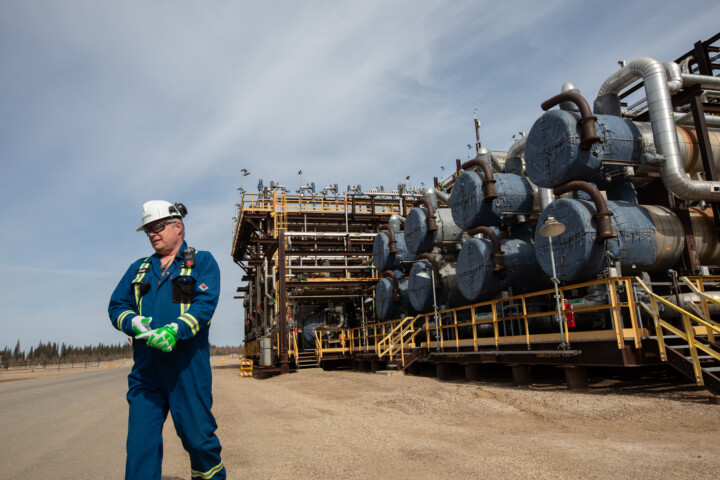
‘The emissions cap will be costly’: Brian Dijkema on how the natural resource sector has sustained Canada’s middle class
Brian Dijkema, the president of Canada at Cardus, and a senior editor of Comment, discussed the role that Canada’s natural resource sector has played in sustaining mid-skilled labour demand in this country. He also shed light on the risks the Trudeau government’s proposed emissions cap on the oil and gas sector could pose to middle-class opportunity.
Here are three takeaways from the discussion.
1. The role of natural resources in preventing job polarization
Canada’s natural resource sector, especially oil and gas, has helped maintain middle-class stability by providing well-paying jobs and sustaining communities. Unlike the U.S., which has faced severe job polarization, Canada’s resource industry has created opportunities for those without higher education to secure stable, skilled positions that contribute to the country’s socio-economic mobility. The oil, gas, and trades sectors demand high productivity and offer unique job security, in contrast to other Canadian industries. This stability is especially critical in preserving middle-class opportunities and averting the socio-economic hollowing seen in other nations. Additionally, the resource sector has been particularly beneficial for male employment, often in construction and skilled trades. As the Trudeau government introduces policies like emissions caps, which are not effective enough in helping these industries, the stability and resilience the resource sector provides are at risk. This underlines the sector’s importance, not only economically but as a bulwark against the broader effects of job displacement, that could otherwise leave many Canadians in low-wage, insecure jobs.
2. The challenges of a “just transition”
“Just transition”, which the UN defines as, “ensuring that no one is left behind or pushed behind in the transition to low- carbon and environmentally sustainable economies and societies.” This concept, as applied to workers in the natural resource sector, has faced criticism for lacking genuine consideration of workers’ agency and economic realities. Many feel that the policy approach treats workers as replaceable, imposing top-down changes without offering viable career alternatives. This framework often appears detached, with decisions made by policymakers who are removed from the affected communities and industries.
Critics argue that policies under the “just transition” narrative lack adequate planning to ensure that displaced workers find jobs offering comparable wages, stability, and meaning. This disconnect between policymakers and affected communities highlights a need for more empathetic and inclusive policy design. The natural resource sector isn’t simply a source of income; it supports community identity and social cohesion, offering employment that resonates beyond monetary value. Policymakers should consider affected workers in shaping policies to better reflect their needs, ultimately creating transition strategies that recognize the complex socio-economic fabric tied to resource-based employment.
3. The need for “mid-skilled” employment
Canadian policymakers are called upon to focus more strategically on mid-skilled employment to support the middle class and foster economic inclusivity. While high-skill sectors are essential, there remains a portion of Canadians who do not pursue university education. A policy agenda that overlooks this segment risks increasing socio-economic divides and discontent. Proposals suggest integrating more vocational and trades-focused education into the national system and emulating successful models in countries like Germany.
This approach would align education with labour market needs, ensuring Canadians without university degrees could access well-paying, skilled jobs. Additionally, policies that decentralize decision-making, bringing policymakers closer to communities impacted by resource-dependent industries, would foster better alignment with local needs. Supporting sectors like construction, trades, and resources isn’t merely about preserving jobs; it’s about recognizing these sectors’ roles in economic and social stability. Encouraging mid-skilled employment can help mitigate discontent and foster a more resilient middle class, ensuring that economic prosperity extends across diverse skill levels and regions.
ChatGPT assisted in the creation of these takeaways.
This episode was made possible by the Canadian Association of Petroleum Producers and the generosity of listeners like you. Make a one-time contribution today.


